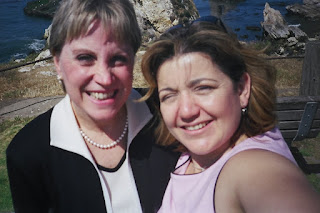Melissa Fitzpatrick has been a registered nurse since 1977, after she received an Associate’s Degree in Nursing from Gwynedd-Mercy College. She went on to earn her Bachelor of Science in Nursing in 1979, also from Gwynedd-Mercy and then her Master’s degree from the University of Pennsylvania.
The top priority of any nurse, she says, is to meet the needs of patients, families, and communities. She decided on a career in nursing after discussing her options with her parents, and initially decided to become a pediatric nurse. “I did not last long in pediatrics,” she recalls, because we lost several children to leukemia in my first clinical rotation. I did however, fall in love with the adult critical care environment.” By the age of nineteen she was a staff nurse in an Intensive Care unit in Philadelphia, where she was taught by those who became her professional mentors and role models.
One such mentor, Melissa Fitzpatrick says, was her Chief Nurse Executive, Carol Hutelmyer, who took a chance on her and let her establish a critical care course. Fitzpatrick loved the teaching experience, and her ability caught the attention of a University of Pennsylvania School of Nursing faculty member who heard her present on sudden cardiac death. Melissa took her suggestion that she submit her presentation to a national critical care conference. It was accepted, and “launched my speaking career and gained my access to an incredible network of colleagues and role models.”
Today, Melissa Fitzpatrick is a nationally recognized consultant, speaker and author of dozens of publications and several book chapters. She is the President and CEO of Fitzpatrick & Associates in Chapel Hill, North Carolina, where she also makes her home.
The top priority of any nurse, she says, is to meet the needs of patients, families, and communities. She decided on a career in nursing after discussing her options with her parents, and initially decided to become a pediatric nurse. “I did not last long in pediatrics,” she recalls, because we lost several children to leukemia in my first clinical rotation. I did however, fall in love with the adult critical care environment.” By the age of nineteen she was a staff nurse in an Intensive Care unit in Philadelphia, where she was taught by those who became her professional mentors and role models.
One such mentor, Melissa Fitzpatrick says, was her Chief Nurse Executive, Carol Hutelmyer, who took a chance on her and let her establish a critical care course. Fitzpatrick loved the teaching experience, and her ability caught the attention of a University of Pennsylvania School of Nursing faculty member who heard her present on sudden cardiac death. Melissa took her suggestion that she submit her presentation to a national critical care conference. It was accepted, and “launched my speaking career and gained my access to an incredible network of colleagues and role models.”
Today, Melissa Fitzpatrick is a nationally recognized consultant, speaker and author of dozens of publications and several book chapters. She is the President and CEO of Fitzpatrick & Associates in Chapel Hill, North Carolina, where she also makes her home.





